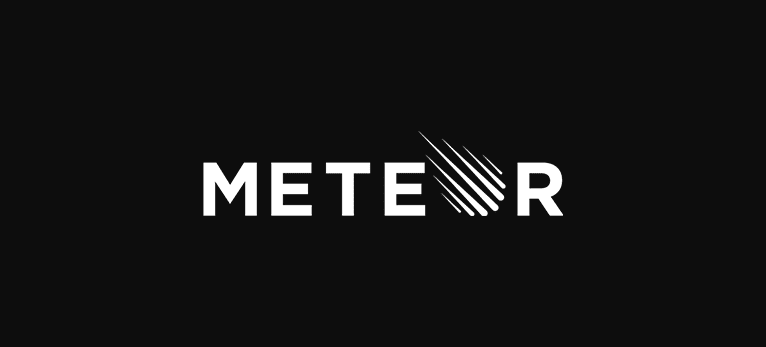 MeteorJs is an open source platform in javascript for rapid web development. Meteor Js is bounded with many packages and libraries which makes web development an easier task. It is build on the top of Nodejs and bundled with MongoDb. Meteor is the fastest developing environment as it needs only single command to install the database and server.
MeteorJs is an open source platform in javascript for rapid web development. Meteor Js is bounded with many packages and libraries which makes web development an easier task. It is build on the top of Nodejs and bundled with MongoDb. Meteor is the fastest developing environment as it needs only single command to install the database and server.
Meteor is the right choice for both the beginners and the experts as it uses a single language to develop all parts of an application which is nothing but Javascript. With Meteor Js, we can save time and also alleviate the issues of lengthy and bore coding. As a matter of fact, you can develop a website with Meteor with only hundred lines of code that would otherwise take around thousand lines of code in other frameworks.
MeteorJs is rapidly becoming popular among developers because of its speed and easiness. MeteorJs has some unique features that make it prominent among other frameworks. Some of them are listed below:
1) Installing Meteor
You can install the latest version of MeteorJs by using the following command on OS X or Linux.
curl https://install.meteor.com/ | sh
2) Setting up your environment
Once you have installed Meteor, you can create its own application by:
meteor create myapp cd myapp
You can start up your local web server immediately with the following command
meteor
Once Meteor starts running, every time you save changes in your project, web pages that are viewing your application will automatically update that changes. It is a key feature of Meteorjs, called as latency compensation. We don’t have to refresh our pages again and again.
After creating your application, you have a local MongoDB working until the server is running. You can connect directly to the db using the following command line.
meteor mongo
3) You can develop with just one language.
One of the annoying part for a web developer is to wear different hats.You need to know how to develop the front-end, the back-end, and the database, which will be in different languages or Frameworks. MeteorJs literally allows you to build and manage the front-end, the back-end, and the database with nothing but JavaScript and thereby alleviates the concern of dealing with different technologies.
4) User account support
Setting up user accounts is one of the attractive features associated with MeteorJs; you can add support for a variety of common user account systems with single line of command.
meteor add accounts-ui meteor add accounts facebook meteor add accounts twitter meteor add accounts gmail
Then in a template:
{{loginButtons}}
The interface itself lets you to setup the app tokens for facebook, gmail, or other oauth services
5) Database Everywhere
Meteor comes with a version of MongoDB which works in both the server and the client. On the server side, it will work in normal way, but on the client side, it is more of a pseudo-database. It means Meteor has custom database in the memory of the client by an API which mimics the Mongo API. This allows you to send subsets of data. It will improve the security and speed as you only need to publish the required information on the server
6) Installing dependencies
Meteor has many useful packages. You’ll see installed packages listed in the .meteor/packages file. You can install dependencies with single line of command as like the following
meteor add markdown meteor add spiderable
This first package lets you use Markdown in your templates and the second makes all pages crawlable by search engines.
Installing packages with NPM is fantastic, but with Meteor it is even easier (without creating a package.json file).
7) Routing
Iron router is the routing package for Meteor. It supports both client and server side routes. It also support different views with yields, hooks,subscription management and plugins .
8) Deploying is simple
Deploying is used to be a hassle for developers but Meteor makes it extremely easy to stage.
meteor deploy myapp.meteor.com
It gives you a working copy of your app at http://myapp.meteor.com. If you want to deploy on another server, Meteor Up makes it very easy and Modulus is another great solution.
MeteorJs is undoubtedly one of the best open source platform in javascript frameworks that can promise fast and efficient coding. I’m certain that it is tagged with a great future and I wont be surprised to see updates regarding it soon.
Know More About This Topic from our Techies
Have a project concept in mind? Let's collaborate and bring your vision to life!
Connect with us & let’s start the journey
Share this article

Get in touch
Kickstart your project
with a free discovery session
Describe your idea, we explore, advise, and provide a detailed plan.


























